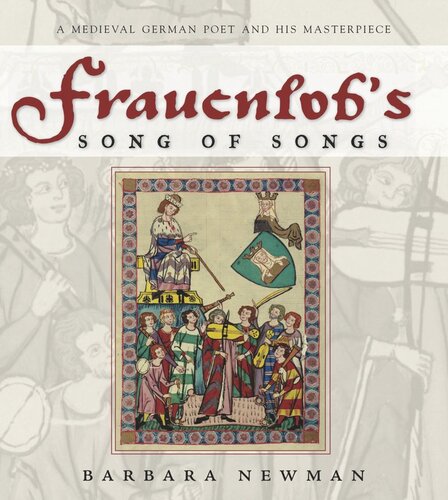

Most ebook files are in PDF format, so you can easily read them using various software such as Foxit Reader or directly on the Google Chrome browser.
Some ebook files are released by publishers in other formats such as .awz, .mobi, .epub, .fb2, etc. You may need to install specific software to read these formats on mobile/PC, such as Calibre.
Please read the tutorial at this link: https://ebookbell.com/faq
We offer FREE conversion to the popular formats you request; however, this may take some time. Therefore, right after payment, please email us, and we will try to provide the service as quickly as possible.
For some exceptional file formats or broken links (if any), please refrain from opening any disputes. Instead, email us first, and we will try to assist within a maximum of 6 hours.
EbookBell Team

4.8
14 reviews“Frauenlob” was the stage name of Heinrich von Meissen (c. 1260–1318), a medieval German poet-minstrel. A famous and controversial figure in his day, Frauenlob (meaning “praise of ladies”) exercised a strong influence on German literature into the eighteenth century. This book introduces the poet to English-speaking readers with a fresh poetic translation of his masterpiece, the Marienleich—a virtuosic poem of more than 500 lines in praise of the Virgin Mary.
Barbara Newman, known for her pathbreaking translation of Hildegard of Bingen’s Symphonia, brilliantly captures the fervent eroticism of Frauenlob’s language. More than the mother of Jesus, the Lady of Frauenlob’s text is a celestial goddess, the eternal partner of the Trinity. Like Christ himself she is explicitly said to have two natures, human and divine. Frauenlob lets the Lady speak for herself in an unusual first-person text of self-revelation, crafted from the Song of Songs, the Biblical wisdom books, the Apocalypse, and a wide array of secular materials ranging from courtly romance to Aristotelian philosophy.
Included with the book is a CD recording of the Marienleich by the noted ensemble Sequentia, directed by Benjamin Bagby and the late Barbara Thornton. The surviving music is the composer’s own, reconstructed from fragmentary manuscript sources. Accompanying Newman’s translation is a facing-page edition of the German text, detailed commentary, and a critical study presenting the most thorough discussion to date of Frauenlob’s oeuvre, social context, philosophical ideas, sources, language, music, and influence. Rescuing a long forgotten medieval masterpiece, Frauenlob’s Song of Songs will fascinate students and scholars of the Middle Ages as well as scholars, performers, and connoisseurs of early music.